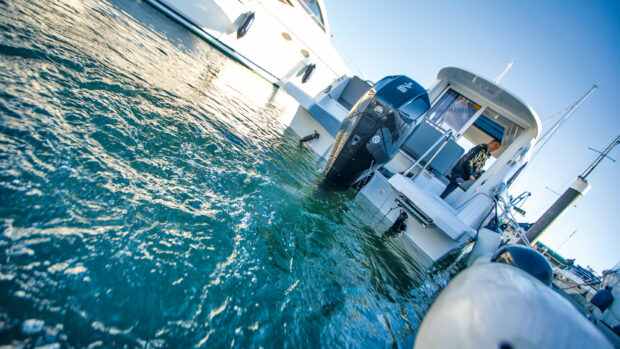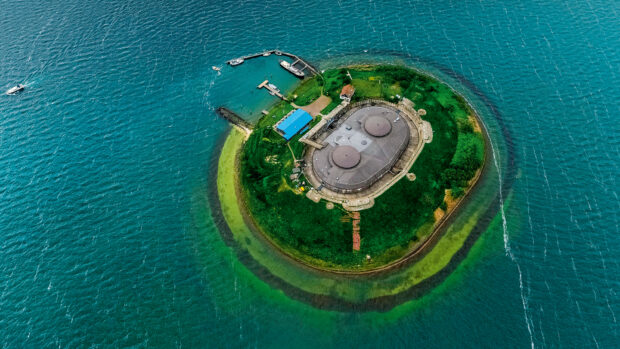It’s a good idea to get any servicing and boat maintenance done when your boat comes out of the water at the end of the season rather than just before it goes back in.
Yards and engineers are busy in the spring and you could struggle to get the boat maintenance work done then.
Boat engines need servicing every year. If the engine is new the early services will likely need to be carried out by a certified agent in order to adhere to the warranty terms, and sterndrive and pod drive boats will also require their drives to be serviced and regularly maintained.
People will have their own tried and tested winterising routines but the most important actions are servicing the engine(s) – including an oil and filter change – pressure-washing any fouling off the hull and running gear, and applying antifoul paint to limit growth.
Article continues below…

Boat storage: Should I keep my boat at home, in a drystack or a marina?

Boat insurance: Why it’s worth the cost even though it’s not essential
It’s also sensible to fill the boat with diesel to stop condensation building in the tank (but not petrol as it goes off), to drain any water that could freeze over winter and cover the boat but ensure there is a good amount of air flow.
If the boat has a cabin, run a heater and boat dehumidifier to keep the interior dry and mildew free.
During the season it’s sensible to keep a close eye on the boat’s mechanics and check things like oil levels, water filters and fuel quality before every trip.

Check oil levels and fuel quality before each trip
We don’t even think about this when it comes to our cars but anything that can be done to avoid engine trouble out at sea is worth it.
What happens if I break down?
We are fortunate in the UK to have the brilliant RNLI volunteers on hand if the worst happens, but they are only to be used for emergencies and shouldn’t be relied on for avoidable boat maintenance problems like running out of fuel.
You can become a member of Seastart, who are a bit like the AA of the sea and will come to your aid for mechanical problems or a tow if you need it.

Dry stack storage allows regular checks of the boat’s running gear
Where should I top up with fuel?
Most harbours and marinas have a fuel berth with a handful of diesel pumps where you can top up the tanks but it can be trickier to find waterside petrol pumps and the price tends to be a lot higher than roadside pumps.
If you have a boat that runs on petrol it might be easier to top up with jerry cans when you get the chance or, if the boat’s on a trailer, tow it to a roadside petrol station and fill the boat up there.
Example annual engine service costs
Single 250hp Yamaha outboard: £375 (inc. VAT)
Single Volvo Penta D4 sterndrive: £1,200 (inc. VAT)
Volvo Penta IPS500 pod drive: £2,000 (inc. VAT)
First published in the June 2021 issue of Motor Boat & Yachting. Our How to start boating series is brought to you in association with Pantaenius.











